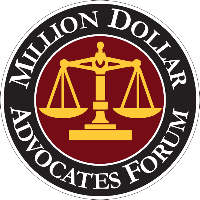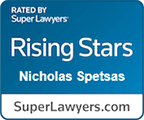Orlando elder abuse and neglect lawyers help protect seniors in Florida from mistreatment in nursing homes, assisted living facilities, and private residences. Unfortunately, many elderly individuals suffer abuse or neglect at the hands of those they trust most, including caregivers, staff, and even family members. Acts such as physical harm, financial exploitation, emotional abuse, sexual assault, and deliberate neglect can endanger an elderly person’s well-being and independence.
In many cases, the warning signs remain hidden until injuries or losses become too serious to ignore. The attorneys at Spetsas Buist investigate these cases, identify responsible parties, and pursue accountability for the harm caused.
If your loved one has suffered abuse or neglect, contact Spetsas Buist at (321) 352-7588 to discuss your legal options and learn how we can help protect your family member’s rights.
Schedule Your Free Consultation
Table of contents
- Key Takeaways About Orlando Elder Abuse and Neglect Cases
- How Our Orlando Elder Abuse and Neglect Lawyers Fight for Victims
- Types of Elder Abuse and Neglect Explained by an Orlando Elder Abuse and Neglect Lawyer
- Warning Signs of Elder Abuse Identified by Orlando Elder Abuse and Neglect Lawyers
- Florida Elder Abuse Laws Explained by an Orlando Elder Abuse and Neglect Lawyer
- Building Strong Evidence in Elder Abuse Cases
- FAQs for Orlando Elder Abuse and Neglect Lawyers
- How an Orlando Elder Abuse and Neglect Lawyer Can Protect Your Loved One
Key Takeaways About Orlando Elder Abuse and Neglect Cases
- Elder abuse encompasses physical violence, sexual assault, emotional abuse, financial exploitation, and neglect occurring in private homes, nursing facilities, assisted living centers, and hospitals throughout Central Florida.
- Florida law provides specific protections for elderly victims through criminal statutes and civil remedies, including enhanced penalties for abuse of persons 65 and older.
- Families often uncover abuse only after noticing unexplained injuries, sudden financial changes, shifts in behavior, or declining health that caregivers may dismiss as normal aging.
How Our Orlando Elder Abuse and Neglect Lawyers Fight for Victims

Our firm handles elder abuse cases with the seriousness and urgency they deserve. Our attorneys previously represented insurance companies and corporate defendants, giving us insight into how they defend abuse claims and avoid accountability. That experience taught us how institutions and insurers defend abuse claims, minimize documented evidence, and deploy legal strategies to avoid accountability.
Located across from Lake Eola Park in downtown Orlando, we serve families throughout Orange County, Seminole County, Osceola County, Lake County, and surrounding communities. Our approach differs fundamentally from high-volume firms that treat clients as case numbers. When you work with us, you receive direct access to your attorney's cell phone and email from the initial consultation through case resolution.
Elder abuse investigations demand immediate action to preserve evidence and witness memories. We obtain medical records, photograph injuries, interview witnesses, review financial transactions, and consult medical experts and forensic financial specialists who understand how abuse manifests in elderly victims.
Many cases involve multiple perpetrators or institutional failures spanning months or years. We build comprehensive cases that hold every responsible party accountable, from individual abusers to corporations whose policies enabled the harm.
Types of Elder Abuse and Neglect Explained by an Orlando Elder Abuse and Neglect Lawyer
Elder mistreatment takes many forms, often happening at the same time and worsening the victim’s condition. Recognizing these categories helps families identify warning signs early and allows an Orlando elder abuse and neglect lawyer to build a strong legal claim on the victim’s behalf.
Physical Abuse of Elderly Individuals

Physical abuse involves intentional acts that cause pain, injury, or physical impairment. Offenders may strike, push, restrain improperly, or handle elderly individuals roughly during daily care.
Some incidents happen when a caregiver loses patience, while others involve intentional harm or attempts to punish behavior the abuser finds challenging. Visible signs may include bruises, welts, cuts, burns, pressure marks, or broken bones and sprains.
Older adults are especially vulnerable to serious injuries from even minor force due to fragile bones, thinner skin, and slower healing.
Sexual Abuse and Assault Against Seniors
Sexual abuse of older adults is often hidden because victims may feel shame, fear, or confusion. Offenders may include caregivers, family members, staff in care facilities, other residents, or strangers who target vulnerable seniors. Abuse may involve unwanted touching, forced nudity, or assault.
Victims with dementia face higher risks because they may not recall or clearly communicate what happened. Some offenders take advantage of this, assuming any report will be dismissed as confusion.
Financial Exploitation of the Elderly in Florida
Financial abuse is one of the most common forms of elder mistreatment in Florida. Offenders may:
- Steal money or property
- Forge signatures or misuse powers of attorney
- Pressure victims to change wills or beneficiaries
- Commit identity theft
Under Florida Statutes §825.103, financial exploitation is defined as the illegal or improper use of an elderly person’s funds, assets, or property for another person’s benefit. This form of abuse often occurs alongside physical or emotional harm, as perpetrators use financial control to maintain power over victims.
Emotional and Psychological Abuse of Seniors
Emotional abuse causes lasting distress even without visible injuries. Offenders may yell, threaten, insult, isolate, or ignore the victim’s needs. Some use fear and manipulation to silence victims or coerce them into signing documents or providing money.
In many cases, abusers isolate elderly individuals to control their decisions and limit outside contact. The resulting anxiety and fear can be as damaging as physical injuries.
Neglect and Self-Neglect Among Elderly Adults
Neglect occurs when caregivers fail to provide necessary care, leading to avoidable harm. This may include withholding food, water, medication, hygiene support, or medical treatment. Neglect can result from indifference, burnout, or lack of training, but it still causes preventable suffering.
Self-neglect happens when elderly individuals cannot care for themselves and lack proper assistance. Although it differs from direct abuse, it can still result in serious harm and may uncover financial exploitation or abandonment by family members or caregivers.
Warning Signs of Elder Abuse Identified by Orlando Elder Abuse and Neglect Lawyers

Early recognition of elder abuse gives families the opportunity to protect their loved ones before the situation worsens. Abuse and neglect often develop gradually, showing a combination of physical, behavioral, and financial signs. Paying attention to these patterns can help you identify when to contact an Orlando elder abuse and neglect lawyer for legal guidance and support.
Physical and Health Indicators of Elder Abuse
Physical evidence often provides the first indication that an elderly person is being mistreated. Family members should look for:
- Unexplained bruises in different stages of healing
- Burns or pressure marks that could indicate restraint use
- Broken bones without a reasonable explanation
- Noticeable weight loss or signs of malnutrition
- Poor hygiene despite regular caregiver involvement
- Untreated medical conditions or infections
These signs may reveal only part of the problem. Injuries are often hidden by clothing or omitted from medical reports. When assessing potential abuse, look for consistent patterns rather than isolated events.
A single bruise may be accidental, but repeated bruising in protected areas such as the inner arms, thighs, or torso often signals intentional harm. Similarly, an occasional missed medication differs from repeated neglect of prescribed treatment.
Behavioral and Emotional Signs of Elder Abuse in Florida Seniors
Behavioral changes often appear before any physical injuries. Emotional distress, fear, or withdrawal can point to ongoing abuse or neglect. Families should pay attention if an older adult:
- Withdraws from social activities or family interactions
- Appears fearful or anxious around a specific caregiver
- Avoids speaking openly when the caregiver is present
- Displays sudden mood swings or personality changes
- Develops unexplained sleep problems or nightmares
Some individuals may become quiet, avoid eye contact, or appear nervous during visits. Others might act as if mistreatment is normal or unavoidable. These emotional reactions can signal long-term harm and should prompt further investigation and intervention.
Financial Indicators of Elder Exploitation
Financial exploitation is one of the most common yet least visible forms of elder abuse. It may continue for months before anyone notices. Warning signs include:
- Missing money, valuables, or personal belongings
- Unexplained withdrawals, bank transfers, or new credit card activity
- Sudden changes to wills, powers of attorney, or beneficiary designations
- Unpaid bills despite adequate income or savings
- New acquaintances or caregivers showing unusual interest in financial matters
When an older person cannot explain financial changes, expresses confusion about money, or appears anxious about missing funds, exploitation may be taking place. Financial abuse often occurs alongside physical or emotional mistreatment, giving perpetrators further control over the victim.
When to Contact an Orlando Elder Abuse and Neglect Lawyer

If you suspect a loved one is being harmed, take immediate action. Reporting your concerns to adult protective services or law enforcement is an important first step.
An experienced Orlando elder abuse and neglect lawyer can review the situation, help gather evidence, and guide your family through the legal process. Legal intervention not only protects the victim but also helps prevent future harm.
Florida Elder Abuse Laws Explained by an Orlando Elder Abuse and Neglect Lawyer
Florida law provides several legal options for holding abusers and negligent institutions accountable when they harm elderly individuals.
Criminal and Civil Legal Options for Elder Abuse in Florida
Elder abuse may result in both criminal prosecution and civil action. Criminal proceedings focus on holding offenders accountable and protecting the public, while civil cases aim to secure compensation for victims and their families. Although these actions move through separate courts, they often intersect when evidence from a criminal investigation supports a related civil claim.
Florida law provides strong protections for elderly victims through both criminal and civil statutes. Under Florida Statutes §§825.102 and §825.103, abuse or financial exploitation of a person age 65 or older is a felony offense, with penalties that reflect the heightened vulnerability of elderly individuals. Civil remedies may also be available, including compensation for injuries, medical expenses, and emotional distress.
Institutional Liability in Elder Abuse Cases
In Florida, nursing homes, hospitals, and home health agencies have a legal duty to protect elderly clients from foreseeable harm. To establish institutional liability for elder abuse or neglect, a plaintiff must show that the facility owed a duty of care, breached that duty through negligent or intentional acts, and that the breach directly caused injury or loss.
Common breaches include understaffing, inadequate training, poor supervision, or failure to address complaints. Corporate negligence laws may also apply to systemic issues such as unsafe staffing levels, lack of proper oversight, or failure to conduct required background checks. Ultimately, liability depends on the specific facts of each case and the governing legal standards.
Damages and Compensation in Florida Elder Abuse Lawsuits

Victims and their families may recover compensation for both economic and non-economic damages, including:
- Economic losses: medical bills, rehabilitation, and long-term care costs.
- Non-economic losses: pain and suffering, emotional distress, and loss of dignity or enjoyment of life.
If the abuse results in death, surviving family members may pursue a wrongful death claim under Florida Statutes §§768.16–768.26. Under §768.72, Florida courts require a reasonable evidentiary showing, such as depositions or affidavits, before allowing a claim for punitive damages to proceed in a civil lawsuit.
Punitive damages are not awarded automatically. They are reserved for cases involving especially egregious conduct to punish the wrongdoer and discourage similar acts in the future.
Building Strong Evidence in Elder Abuse Cases
An Orlando elder abuse and neglect lawyer relies on strong, well-documented evidence to prove mistreatment. Because perpetrators and care facilities often hide wrongdoing, prompt legal action helps preserve records and witness accounts.
Medical and Photographic Evidence
Medical records show the type, timing, and cause of injuries. Patterns emerge when explanations from caregivers do not match medical findings.
Photographs provide clear proof of injury size, location, and severity. Securing medical records quickly prevents alteration, and independent exams often reveal abuse that staff downplay or ignore.
Financial Documentation
Financial exploitation appears in bank statements, credit card activity, property transfers, and altered legal documents. Comparing signatures can expose forgery, while forensic accountants trace missing funds and measure total losses.
Witness Testimony Supporting Elder Abuse Cases in Orlando

Family members, staff, and residents can confirm signs of abuse or neglect. Some witnesses report direct mistreatment; others describe retaliation or suspicious behavior. Records from Adult Protective Services (APS) investigations also support civil claims, even when criminal charges are not filed.
FAQs for Orlando Elder Abuse and Neglect Lawyers
What is the statute of limitations for elder abuse cases in Florida?
Most elder abuse lawsuits in Florida must be filed within four years under Florida Statutes Section 95.11. This statute of limitations generally applies to both negligence claims and intentional torts, such as assault or battery.
However, limited exceptions exist when the abuse was fraudulently concealed or could not reasonably have been discovered despite diligent efforts. Courts strictly construe these exceptions and require persuasive evidence to justify tolling the deadline.
Wrongful death claims follow separate time limits under the Florida Wrongful Death Act. To protect your family’s rights, it’s important to seek legal advice promptly and ensure all potential claims are filed within the applicable deadlines.
What if the abuser holds power of attorney?
Powers of attorney obtained through coercion, undue influence, or incapacity can be invalidated. Even valid ones do not allow theft or exploitation. Agents owe fiduciary duties to act in the principal’s best interests, and breaching those duties creates liability.
Does reporting to Adult Protective Services (APS) help my case?
Yes. Reporting suspected elder abuse to Adult Protective Services (APS) is a crucial step in protecting victims. APS records their investigations and findings, which can serve as valuable evidence in civil lawsuits, even when no criminal charges are filed.
However, APS reports are often confidential and may be subject to evidentiary restrictions. Accessing them for use in litigation may require a court order or discovery subpoena. Consulting an attorney early in the process can help navigate these procedures and ensure that relevant documentation is properly obtained.
What if the abuser has no assets?
Other parties may share liability. Employers, care facilities, property owners, or insurers could be responsible depending on the situation. Attorneys investigate all potential recovery sources to maximize compensation.
How do I prove financial exploitation?
Financial abuse often involves trusted individuals. Forensic accountants trace missing funds and identify suspicious transactions.
Medical evidence about cognitive capacity helps show manipulation. Courts recognize that trust does not excuse exploitation, and Florida law protects vulnerable adults from abuse of authority.
How does your law firm charge for an Orlando elder abuse case?
Our Orlando elder abuse and neglect lawyers handle these cases on a contingency fee basis. This means we cover all upfront costs of litigation and investigation, and you pay no attorney's fees unless they win your case through a settlement or trial verdict. The fee comes as a percentage of the total recovery.
This approach ensures families can seek justice for their loved ones regardless of their current financial situation.
What is the first thing I should do if I suspect elder abuse or neglect?
First, ensure your loved one remains safe and immediately report the suspected abuse or neglect to the Florida Abuse Hotline at 1-800-96-ABUSE (1-800-962-2873). This state agency investigates reports of abuse, neglect, or exploitation. Your report triggers an investigation that protects the victim and creates an official record.
After ensuring immediate safety and reporting, contact an experienced Orlando elder abuse and neglect lawyer to discuss your legal options and begin building a civil case.
How an Orlando Elder Abuse and Neglect Lawyer Can Protect Your Loved One

Elder abuse represents a failure to protect those who have given so much to their families and communities. Discovering that a loved one has suffered neglect, exploitation, or violence can cause deep pain and erode trust. Civil legal action allows families to hold responsible individuals and institutions accountable and seek compensation that reflects the harm done.
Beyond individual justice, elder abuse lawsuits have a broader impact. They create public records that expose misconduct, drive improvements in care standards, and remove unfit caregivers from positions of trust. By pursuing justice for your loved one, you help safeguard other seniors from future mistreatment.
At Spetsas Buist, our Orlando elder abuse and neglect lawyers handle every case with compassion and resolve. Call (321) 352-7588 for a free consultation, and let our team start protecting your loved one’s rights while pursuing the justice your family deserves.